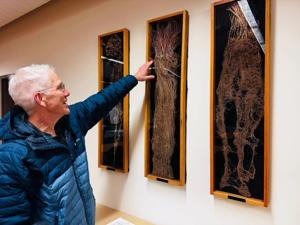
UPDATE: Dr. Juliet Turner, a 27-year-old ecologist from the University of Oxford, is facing an overwhelming wave of sexist backlash after celebrating her recent Ph.D. achievement on social media. The incident, which unfolded on November 14, 2023, has sparked outrage and highlighted persistent misogyny in online discourse.
Turner, who successfully defended her thesis on the evolution of cooperation and division of labor in insects, shared her milestone with a post that garnered over 51,000 likes. In her celebratory message, she declared: “I passed my viva exam! After ~4 years of research, I successfully defended my thesis. You can call me Doctor.” However, instead of receiving universal praise, she was met with a barrage of derogatory comments from online trolls questioning her life choices and academic pursuits.
One particularly disturbing comment accused her of being a “genetic dead end” for not having children by the age of 30, despite her being only 27. Another user questioned her academic path, suggesting that she could have had “four babies in that time.” These sentiments reflect a troubling trend, as a recent survey by Amnesty International revealed that 73% of Gen Z users in the U.K. have witnessed misogynistic content online, with 70% believing that such language has increased.
In a conversation with Newsweek, Turner expressed her shock at the scale of the backlash. “Every time I open the app, I’m flooded by new posts of strangers weighing in on either the validity of my thesis topic, the health of my eggs, or the wisdom of my life choices!” she stated. “It’s very weird.”
Despite the negativity, Turner remains focused on her research and its importance. She noted that while she never expected to defend her academic choices to a “global audience of a few million strangers,” she appreciates the opportunity to engage in meaningful discussions about her work.
Turner, who comes from an academic family, believes the criticism reflects a broader societal issue regarding women in academia. She pointed out that many women face undue pressure to justify their reproductive choices, stating, “It appears to be much more likely for women to have their private life and reproduction become a public conversation.”
While Turner has not personally experienced difficulties in the workplace related to her gender, she acknowledges that women in STEM fields often encounter stereotypes and assumptions that can hinder their careers. “It’s a hard line to walk because, on one hand, you want to show that you are capable, but also there are many people who are very ready to interpret your conviction as conceitedness,” she explained.
As she continues her work as a pollinator ecologist, Turner is excited to apply her research to real-world projects related to organic and regenerative farming across the U.K.. She emphasized the importance of applied conservation research and expressed her eagerness to contribute to innovative evolutionary projects and science communication efforts.
The backlash faced by Turner underscores a critical issue in today’s society: the ongoing struggle against misogyny and sexism, particularly in fields traditionally dominated by men. As the conversation around women in academia and STEM continues to evolve, many are left wondering what steps can be taken to combat these harmful attitudes and foster a more inclusive environment for future generations.
As this story develops, it remains vital for society to support women like Turner who are breaking barriers and making significant contributions to their fields. Her journey serves as a reminder of the challenges many face in pursuing their dreams, and the importance of resilience in the face of adversity.







